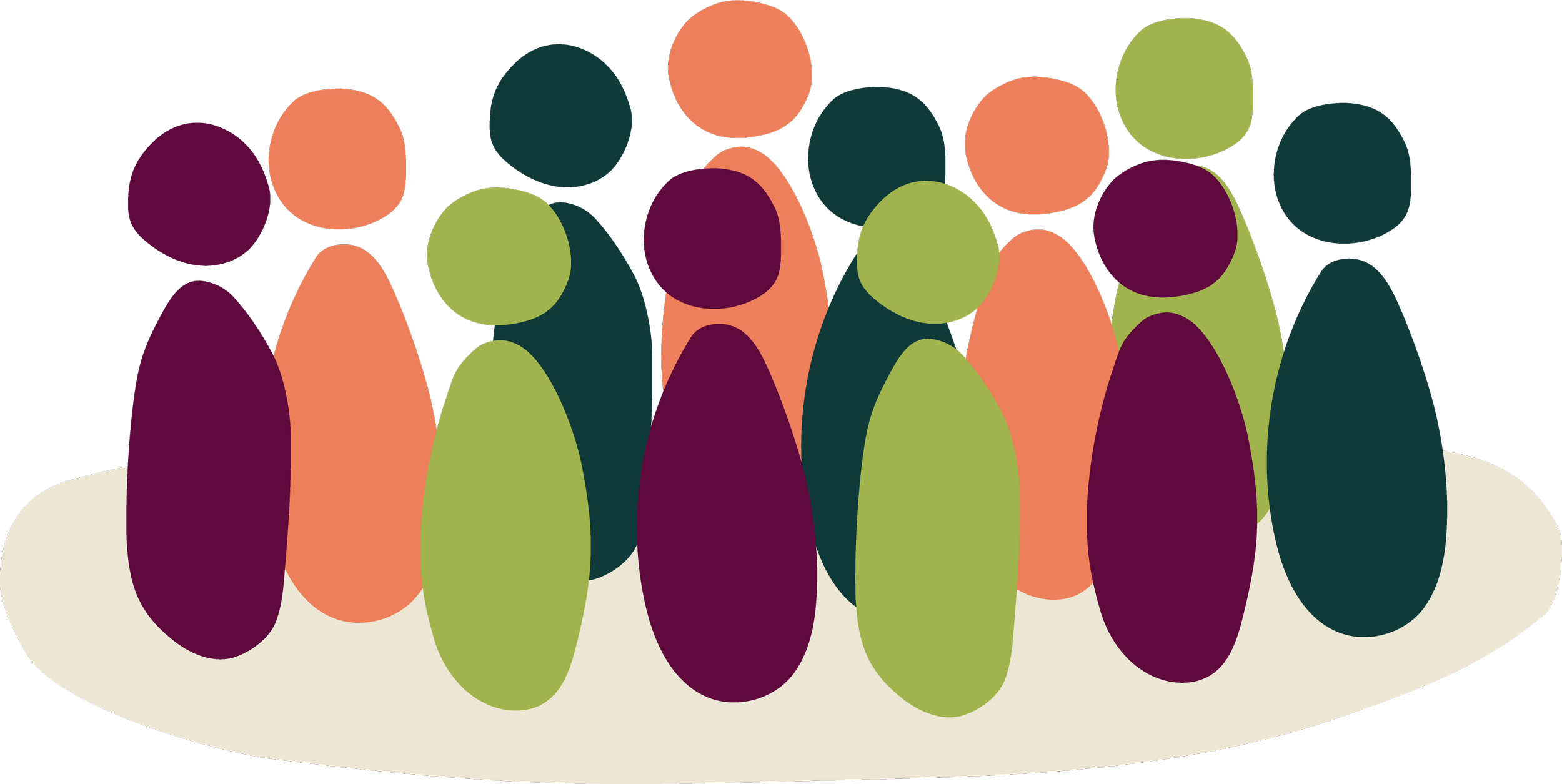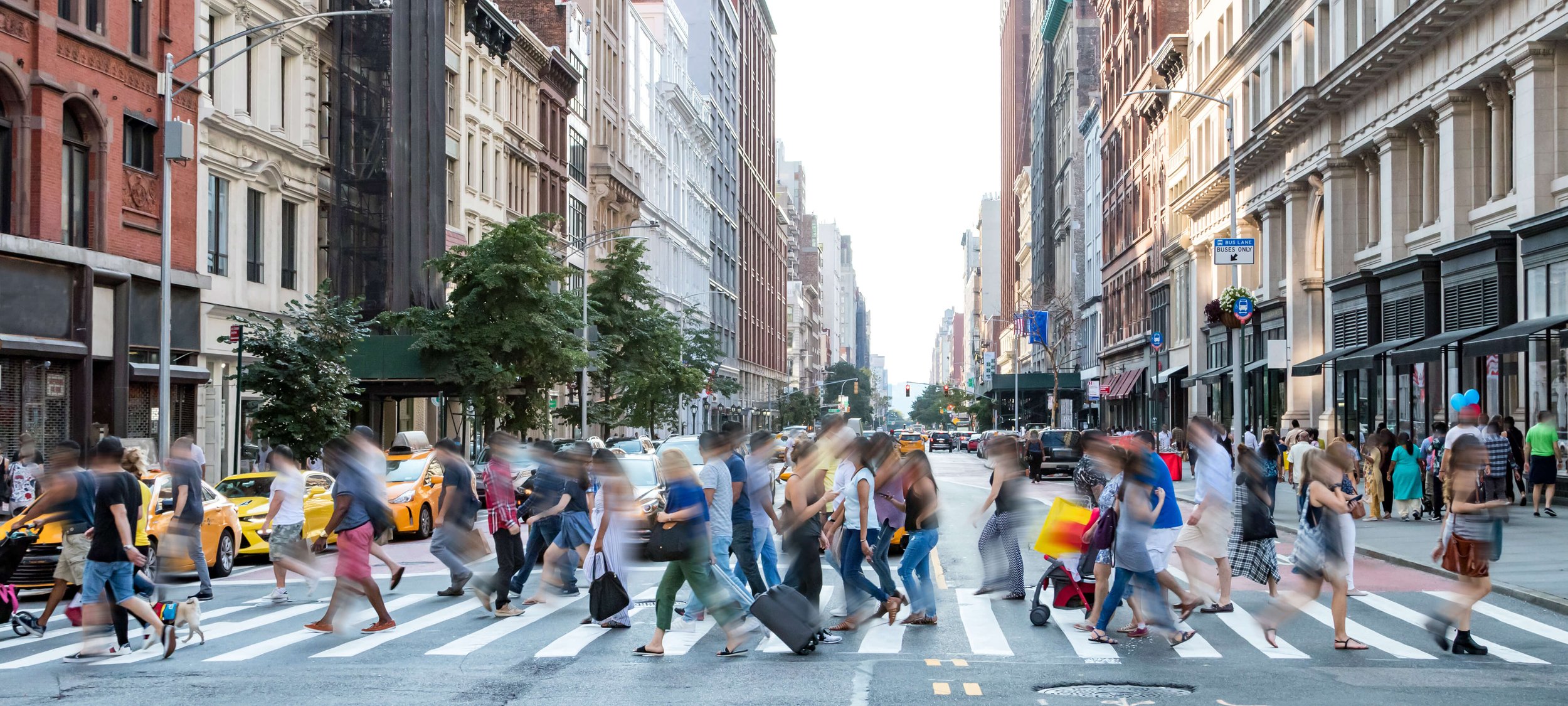GETTING STARTED
Let’s define social health and learn ways to strengthen yours.
What is social health?
Social health is the dimension of overall health and well-being that comes from connection and community. Whereas physical health is about your body and mental health is about your mind, social health is about your relationships.
What does it mean to be social healthy?
Strong social health includes having meaningful relationships and feeling supported, valued, and loved. It varies from person to person—discover what it looks like for you!
Every single person has the fundamental need for connection.
Too often we feel disconnected. We spend more time with characters on shows than our friends and family. We live in neighborhoods without knowing any neighbors. Or we feel hyperconnected—scrolling mindlessly online instead of engaging meaningfully in person. Too busy for solitude to connect with ourselves.
1 in 5
people don’t have anyone they can count on for help.
2X
more teens felt lonely at school in 2018 than in 2012.
330M
adults globally go 2+ weeks without talking to a loved one.
62%
of employees in the US report feeling lonely often.
$6.7B
healthcare toll of isolation among older adults per year.
As a result, the US Surgeon General declared loneliness an epidemic and both the UK and Japan appointed Ministers of Loneliness.
Research shows that supportive relationships benefit your health.
Lower risk of heart disease
Stronger immune response
Better cognitive functioning
Fewer depressive symptoms
Higher chance of long lifespan
Read
What is social health?
What is Social Health?
Discover the often-overlooked factor in overall well-being: social health. Kasley Killam introduces this emerging concept, emphasizing the vital role of connection and community.
READ THE ARTICLE | Psychology Today
Why is social health important?
A Hug a Day Keeps the Doctor Away
Research underscores the need to prioritize quality time with loved ones and combat social exclusion, recognizing the healing power of touch and human connection.
READ THE ARTICLE | Scientific American
Isolation Starves Your Brain
A recent study from MIT reveals that both hunger and isolation activate the same area of the brain linked to craving. Just as hunger signals the need for food, loneliness acts as a cue for the essential need for connection.
READ THE ARTICLE | Psychology Today
Lessons from COVID-19: Improving Social Health to Build Community Resilience
This article recommends ways to improve social health proactively and preventively so that communities are better prepared for climate change.
READ THE ARTICLE | ASA Generations
To Combat Loneliness, Promote Social Health
Loneliness is a growing epidemic with profound health implications. Scientific evidence highlights the critical role of social connections in disease prevention and overall well-being. Make social health a public health priority, join initiatives like the Togetherness Program and the Campaign to End Loneliness.
READ THE ARTICLE | Scientific American
Understanding Loneliness and Social Health Innovations in the COVID-19 Era
Exploring the impact of the pandemic on social relationships and the emerging solutions to combat loneliness: takeaways from the UCL-Penn Global COVID Study.
READ THE ARTICLE | UCL Open Environment
How do you improve your social health?
5 Ways to Create a Culture of Connection for Remote Workers
Creating a culture of connection for remote workers is vital for their well-being and productivity. By prioritizing social well-being, organizations can cultivate a thriving remote work culture.
READ THE ARTICLE | Psychology Today
Creating the Conditions for Social Well-Being
26 experts and over 2,500 community members from 55 countries discuss how to reduce and prevent loneliness and improve social well-being across sectors. In this report, you will discover key takeaways, stakeholder recommendations, innovation spotlights, and resources for individuals, communities, and organizations to take action.
READ THE REPORT | Social Health Labs
Applying the Social-Ecological Model of Health to Loneliness
A personal experience organizing an intergenerational gathering sparked the realization of the power of local community action in addressing loneliness.
READ THE ARTICLE | Medium
How’s Your Social Health?
The pandemic has highlighted the importance of human connection for our well-being. Research has consistently shown that close relationships contribute to our immunity, mental health, and overall longevity.
READ THE ARTICLE | Psychology Today
Make Social Health a Priority
What is social health and how can you make it a priority? Kasley encourages readers to reflect on their social contacts, relationships, and sense of community, and then develop a plan to strengthen their social connections.
READ THE ARTICLE | Psychology Today
The Surprising Way to Boost Your Immunity
We often focus on preventive measures like hand-washing and vaccinations to avoid getting sick. However, there's an overlooked health habit that can significantly boost your immune system: human connection.
READ THE ARTICLE | Psychology Today
Volunteering: A Solution for Loneliness
Loneliness is a widespread problem with serious health implications, affecting a significant portion of the population. By actively participating in volunteer opportunities, individuals can contribute to building a culture of social health, one interaction at a time.
READ THE ARTICLE | Scientific American
7 Tips for Spending the Holidays Alone
Spending the holidays alone can be tough, but there are ways to take care of your social well-being and make the most of the situation.
READ THE ARTICLE | Psychology Today
How to Strengthen Your Social Muscles
Social health, an essential yet often overlooked dimension of well-being, can be improved through simple habits. Research reveals five evidence-based ways to strengthen your social muscles and cultivate healthy connection habits
READ THE ARTICLE | Psychology Today
How to Prevent Loneliness in a Time of Social Distancing
Research shows that developing digital habits that support meaningful human connections can mitigate loneliness. Utilize video chat, engage in acts of kindness through direct messages or emails, cultivate online communities based on shared interests, nurture existing relationships, and explore tools and apps designed to optimize online interactions.
READ THE ARTICLE | Scientific American
Listen
The Power of One Meaningful Connection Per Day
Listen to the conversation between Andy Proctor, a happiness activist, and Kasley Killam, MPH, an expert in social health and human connection. Together, they discuss ways to make your life more happy with science backed strategies and the impact of friendship on our health.
HEAR IT HERE | More Happy Life Podcast
Watch
Goodbye Loneliness, Hello Social Health
Watch as Kasley shares her perspective on social health, explains the problem that we are facing with isolation and loneliness, and provides solutions for healthier relationships.
WATCH IT HERE | Lightning Talk presentation Harvard Alumni Week
The Future of Health is Social
Kasley highlights that the future of our health is related to our social well-being. Her presentation highlights that the crisis based approach to our health is outdated and every step we can take to shift our focus to prevention can reduce the pressure on the healthcare system, improve life satisfaction and the well-being of people.
WATCH IT HERE | The GenWell Project










